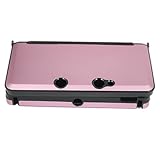Branding is something I think about a lot, especially the personal branding that authors have to consider today.
 It?s not an easy process to create a brand.
It?s not an easy process to create a brand.
We are complex people and our writing may span different genres. We also have other facets of life that are important, so how do we combine it all into a coherent brand?
To discuss further, I?m very happy to introduce this guest post by Dan Blank from WeGrowMedia.com
To help develop their readership, many writers want to jump right into blogging, social media, and various other means of engaging others. Now, I am a huge fan of these tools because they connect people in powerful ways. But, for a writer who hopes to grow their career based on these interactions, I often find that they jump in a little too soon, that their are key elements of their own message and purpose that need to be worked out first.
Branding is communication
Enter: branding. I know, it?s a scary word; doesn?t it just send shivers up your spine?
I totally understand why the word ?branding? can make you cringe: you don?t want to be a brand, you want to be a person; you don?t want to market to others, you want to connect with like-minds; you don?t want to become a product, you want to create art. I 100% agree on each of these things.
To me, branding is not about any of those things, it is about communication. Effectively understanding your own purpose, that of your audience, and the ways to connect the two. That?s it, just a word to describe a much deeper and more meaningful process.
I teach a course for writers on how to develop an author platform, and we don?t get to the topic of actually joining social networks and creating blogs until halfway through the course? Why? Because you need to get the basics down first: identifying your goals, defining your purpose, and understanding who you are trying to reach. It?s in that second one, defining your purpose, where branding is born.
If you can?t clearly communicate your purpose, then how can you engage a readership?
I recently spent three months digging into what my own brand means. I worked with others, did tons of thought writing on the topic, it honestly felt a lot like therapy. But what I worked away with was a clear understanding of why I do what I do, of how my work helps others reach their goals, and the language by which to connect the two. But it did so much more than that. Every decision is helped by understanding my brand. The font to use in a presentation, the look of my videos, photos of myself, the places I need to be, etc.
Companies often have what they call a ?brand book,? or ?brand bible.? It is a document that they go back to again and again that helps ensure not just that they are consistent, but that every element of their company works to a common purpose. It is why companies known for their exceptional branding or customer service are so consistent in their high quality. Why nearly every experience with Zappos is effortless, and at times, delightful; why nearly every experience at Disneyworld is surprising and pleasant; why the Apple Store seems more like a gathering place than an electronics store.
As you develop your brand as a writer, here are some things to consider:
Embrace that you are a writer.
This may sound basic, but many writers have a hard time embracing that identity. They see themselves as a writer only after the definitions of their day job, role in their family, etc. When speaking about your work, own that identity of being a writer.
Speak clearly.
Every word counts. ?Too many writers clutter up their purpose with divergent messages. They try to represent every aspect to who they are, to hope they will be. What happens is that the core message is lost. This happens everywhere from one?s Twitter bio, to their About page, to how they introduce themselves to an agent at a writing conference. The more words you remove from your description of your purpose, the stronger the words that remain become.
Be focused.
Few people want to be pigeonholed, but when you are just starting out, when you are still developing that core audience ? err on the side of being specific. Focus the topics you discuss, the audiences you target, the way you describe your work. Too many writers feel that their work should appeal to everyone. And while this may happen, some day, build your way up to that. Focus.
Create core messages you will go back to again and again.
Determine the best ways to communicate your purpose and describe your writing. This helps you to determine what it is, and what it isn?t, and ensures that various people hear the same message. It also lets you hone and evolve how you describe your work.
The value of repetition.
This is branding 101: repetition helps people remember what you are about. Many writers are a bit sheepish to even say once what their work is about, let alone repeat it over time. Never take for granted that many folks are learning about your work for the first time. You are always in the process of helping people learn about the power of your work, about your viewpoint as a writer. Don?t assume people know, repeat those core message when in situations to meet new people.
Tell your STORY, that in and of itself engages people.
Yes, your writing is the key here. But don?t forget that your story as a writer is part of what engages people. How your purpose extends to the work you create. Shape your story as it relates to your work, and share that when you meet people or on the About page of your website.
All of this is about surfacing your purpose as it relates to your writing, your goals, and your audience. This goals beyond surface level interests or demographics. Far too many authors begin and end their purpose, their brand, with vague statements that could apply to thousands of writers. They settle on broad genre definitions instead of really personalizing their brand and considering how it connects with others in meaningful ways.
Branding is connection
In the end, this is about connecting your work to readers who will appreciate it most. In one form or another, this is about story. When you consider your identity as an author, consider framing your own story, of using elements of branding to help communicate this more effectively to potential readers.
What are your thoughts on author branding? Please leave a comment below.
 Dan Blank is the founder of WeGrowMedia.com, which?provides writers and publishers the strategy and tactics they need to impact their communities and build their legacies. He has worked with more than 500 writers, a wide range of publishers, and regularly speaks at conferences about branding, content strategy, social media, and marketing. He teaches an 8-week online course for writers called Build Your Author Platform. You can follow him on Twitter at @DanBlank and read his blog at http://WeGrowMedia.com
Dan Blank is the founder of WeGrowMedia.com, which?provides writers and publishers the strategy and tactics they need to impact their communities and build their legacies. He has worked with more than 500 writers, a wide range of publishers, and regularly speaks at conferences about branding, content strategy, social media, and marketing. He teaches an 8-week online course for writers called Build Your Author Platform. You can follow him on Twitter at @DanBlank and read his blog at http://WeGrowMedia.com
Image: iStockphoto
Related posts:
- Author Platform Consulting With the whirlwind of social media, author platform building and...
- Writer?s Block: The 12-Step Cure BookBaby helps authors publish ebooks and I recently did a...
- 5 Essential Tips For Creating A Children?s Book It?s always brilliant to hear lessons learned from other writers...
- World Building: Don?t Do It! This is a guest post from author CJ Lyons. I...
Related posts brought to you by Yet Another Related Posts Plugin.
Tagged as: branding
Source: http://www.thecreativepenn.com/2012/03/20/branding-author-platform/
sturgis whitney houston laid to rest daytona bike week amazing race maya angelou mary kay ash tiny houses
 When you speak to Mark Sandeno @markgustav at
When you speak to Mark Sandeno @markgustav at  After working with Aaron Booker @aaronbooker and his team at
After working with Aaron Booker @aaronbooker and his team at  Jimmy Kwan @cultofkwan
Jimmy Kwan @cultofkwan  The Small Business Tour is leveraging the expertise of Tara Barnes @PathableTera from
The Small Business Tour is leveraging the expertise of Tara Barnes @PathableTera from  If you are trying to figure out the best way to stay in touch with your community of prospects and customers you quickly realize that Dana Pethia @Dana6167 of
If you are trying to figure out the best way to stay in touch with your community of prospects and customers you quickly realize that Dana Pethia @Dana6167 of  When you work with Thomas Marks @WThomasMarks of
When you work with Thomas Marks @WThomasMarks of 

 For all the benefits that come with living in Europe -- sharing a unified currency, easy access to medical care -- getting timely access to Amazon's popular line of Kindle e-readers isn't one of them. Amazon begun rolling out their WiFi-only Kindles in a
For all the benefits that come with living in Europe -- sharing a unified currency, easy access to medical care -- getting timely access to Amazon's popular line of Kindle e-readers isn't one of them. Amazon begun rolling out their WiFi-only Kindles in a 

 It?s not an easy process to create a brand.
It?s not an easy process to create a brand.  Dan Blank is the founder of WeGrowMedia.com, which?provides writers and publishers the strategy and tactics they need to impact their communities and build their legacies. He has worked with more than 500 writers, a wide range of publishers, and regularly speaks at conferences about branding, content strategy, social media, and marketing. He teaches an 8-week online course for writers called Build Your Author Platform. You can follow him on Twitter at @DanBlank and read his blog at http://WeGrowMedia.com
Dan Blank is the founder of WeGrowMedia.com, which?provides writers and publishers the strategy and tactics they need to impact their communities and build their legacies. He has worked with more than 500 writers, a wide range of publishers, and regularly speaks at conferences about branding, content strategy, social media, and marketing. He teaches an 8-week online course for writers called Build Your Author Platform. You can follow him on Twitter at @DanBlank and read his blog at http://WeGrowMedia.com